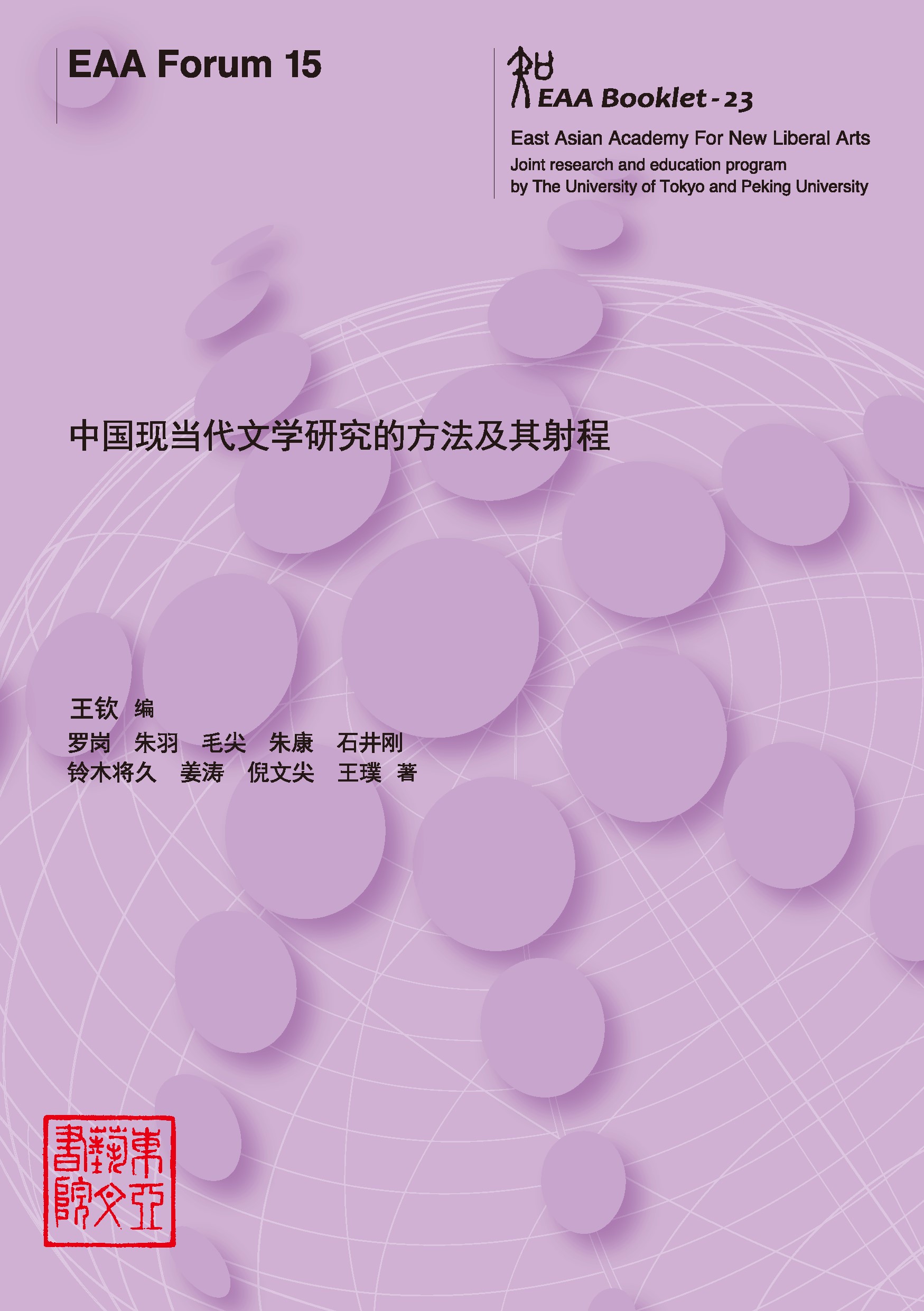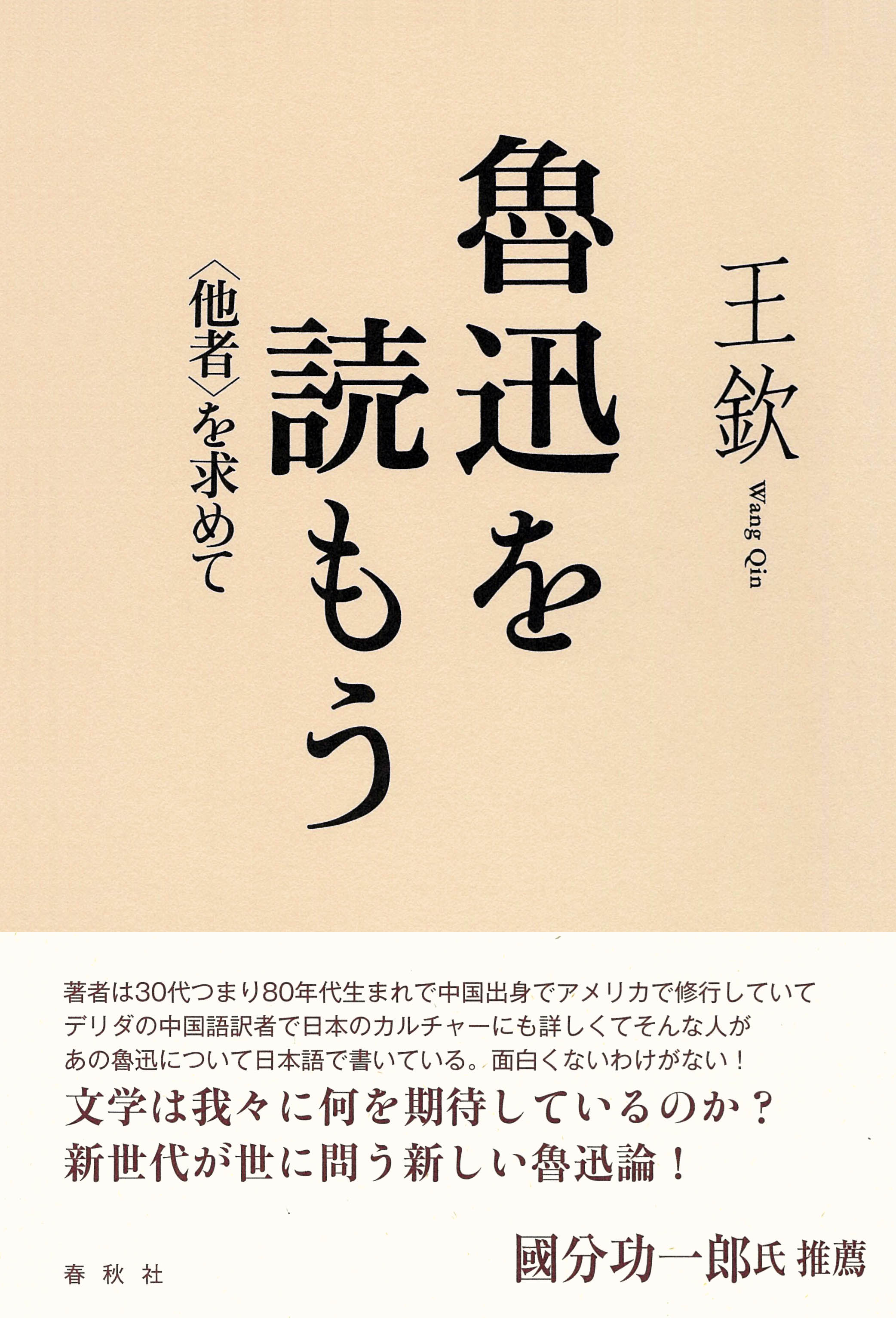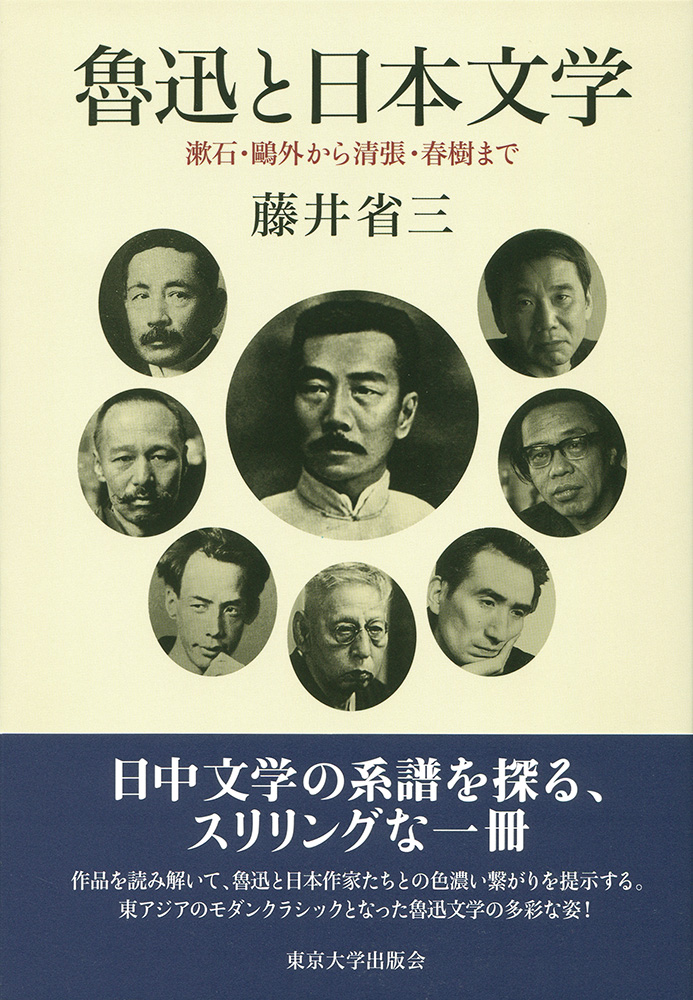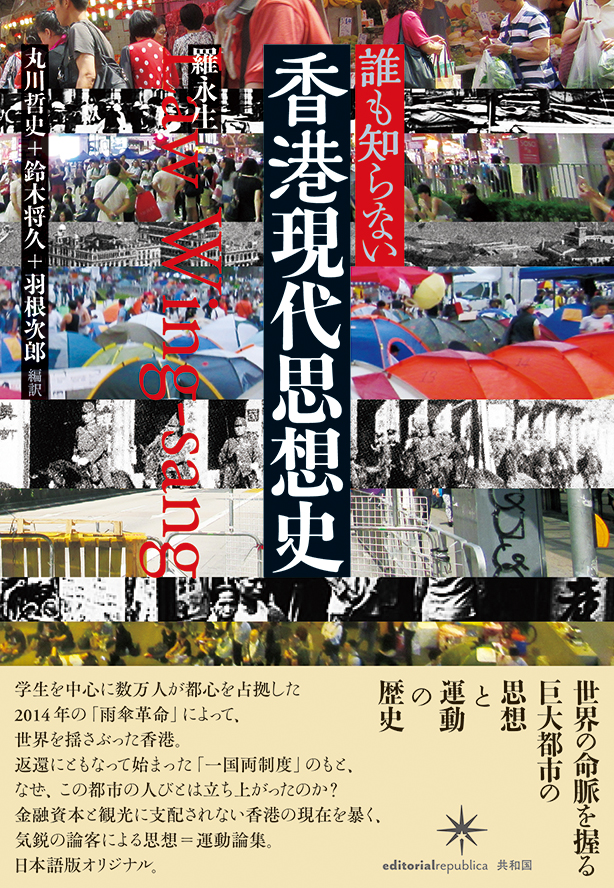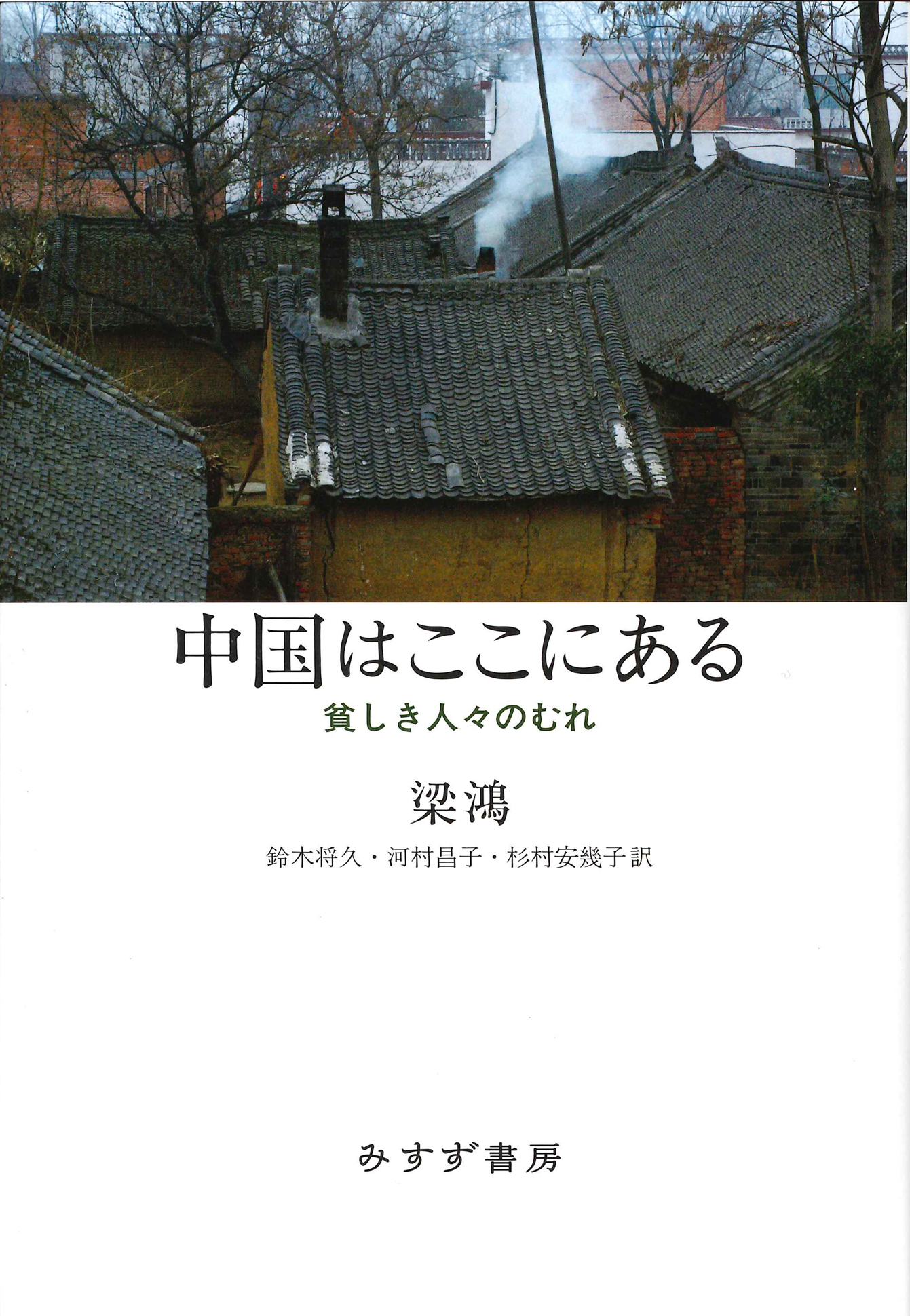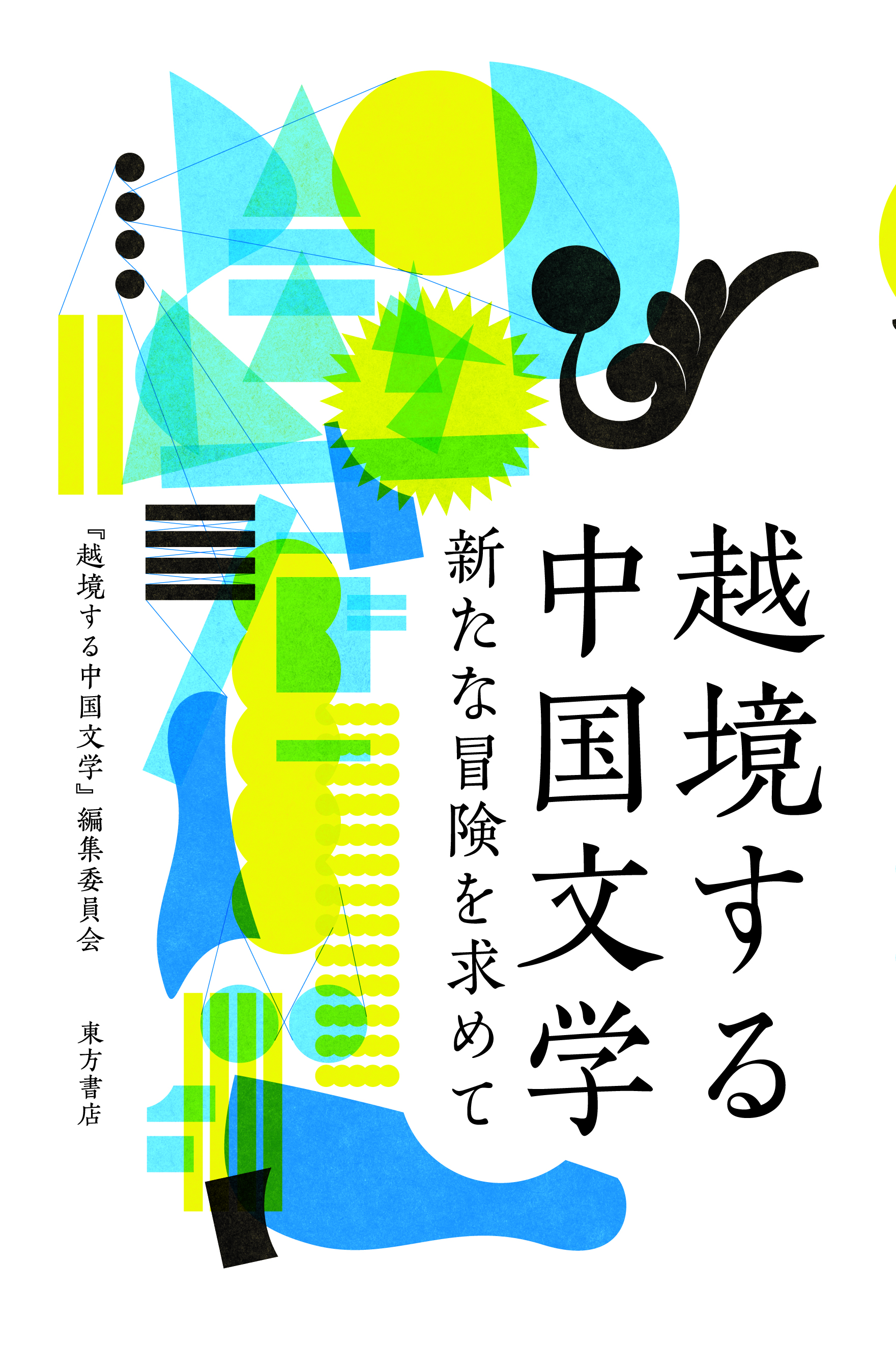
Title
Ekkyo suru Chugoku-Bungaku (Transborder Chinese Literature: In Search of New Adventures)
Size
676 pages, hardcover
Language
Japanese
Released
February, 2018
ISBN
9784497218018
Published by
Toho Shoten
Book Info
See Book Availability at Library
Japanese Page
This book is a felicitation volume, put together by former students, to commemorate the retirement of Professor Fujii Shōzō, who taught for thirty years in the Department of Chinese Language and Literature in the Graduate School of Humanities and Sociology / Faculty of Letters, University of Tokyo.
Professor Fujii’s research started with his study of Lu Xun, a representative writer of modern China. There already existed in Japan a substantial body of research on Lu Xun, and taking this into account, Professor Fujii shed new light on Lu Xun from the perspective of comparative literature. The initial fruits of his research were brought together in Russia’s Shadow: Natsume Sōseki and Lu Xun (Tokyo: Heibonsha). In previous Japanese research on Lu Xun, emphasis had been placed on his aspect as a revolutionary engaged in a bitter struggle with China’s realities. Professor Fujii, on the other hand, introduced the perspective of comparative literature, and as well as conducting detailed textual investigations, he highlighted Lu Xun’s aspect as a man of the modern era.
Having achieved some excellent results in his research on Lu Xun, Professor Fujii extended the scope of his research. First he incorporated the perspective of social history into the study of literature. This resulted in A History of How Lu Xun’s “My Old Home” Has Been Read (Tokyo: Sōbunsha), which traced in historical terms how Lu Xun’s short story “My Old Home” has been read. Professor Fujii also extended his purview to film and popular literature, and not restricting himself to continental China, he also undertook research on Taiwanese literature and, more broadly, modern literature throughout East Asia. It could be said that, with Lu Xun as a pivot, he has discussed almost every one of the wide range of literary phenomena that might be considered to relate to Chinese literature, and his History of Sinophone Literature (Tokyo: University of Tokyo Press) represents a grand summation of his research.
This book is divided into four parts, and these overlap with the trajectory of Professor Fujii’s research. Part 1 contains articles on Lu Xun and the contemporaneous literature of continental China; part 2 contains the results of cultural studies, going beyond literary texts; part 3 deals with research on modern East Asian literature, starting with Taiwanese literature; and part 4 contains research on film and recent popular literature. Each article has been written in line with the author’s interests, and there is a certain lack of uniformity. But all the contributors most certainly began their studies under Professor Fujii and have since then been developing their research, each in their own way. Notwithstanding differences between individual articles, on reading through this book one can gain an overall sense of the breadth of Professor Fujii’s research and of the direction of research on Chinese literature inspired by his research.
It has been said that Professor Fujii’s retirement represented the end of an era in Japanese research on modern Chinese literature. From this book one should be able to gain an idea of research trends during this era epitomized by Professor Fujii. It will also continue to be consulted in the future as a body of accumulated research, and at the same time it ought to mark the start line of the next era’s research.
(Written by Masahisa Suzuki, Professor, Graduate School of Humanities and Sociology / 2018)



 Find a book
Find a book


